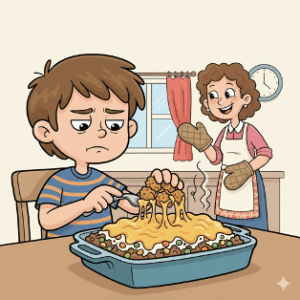Breaks Are Better
Breaks are Better is a version of Check-In/Check-Out (CICO) for students who engage in challenging behavior for the purpose of escaping or avoiding non-preferred tasks such as academic tasks or assignments. Students carry a point card and earn points for meeting expected academic behaviors and are provided with clear opportunities to ask for and take breaks in an appropriate way.
https://playbook.panoramaed.com/moves/995
Goal
The goal of this intervention is to provide students with clear academic expectations and frequent feedback to support their engagement and/or assignment completion. Additionally, Breaks are Better has the additional component to support students with appropriately taking breaks when they need to rather than engaging in challenging behaviors.
Action
Preparation:
Determine academic behaviors to target
Define target behaviors in positive way
Create point card that includes break tracker
Determine rewards students will earn for meeting daily or weekly goals
Determine the mentor student will check in with at the beginning and end of the day
Review the intervention with student
Explain the intervention
Review how to meet the expected behaviors
Demonstrate how the point card will be filled out
Explain how the student will earn rewards
Model and practice how the student should ask for breaks and how they will mark off allotted breaks on the point card
Daily Procedures:
Morning Check-In
Student and mentor have a check-in each morning after arriving to school
During this meeting the mentor reviews the behavioral goals, sets goals for the day, and provides encouragement to the student
Coordinator will ask student to give an example of a time when they will likely request a break that day
Review how to appropriate ask for a break (if needed)
Monitoring, Evaluation, and Feedback
Throughout the day, the teacher observes the student's behaviors
Teacher evaluates student behavior and fills in the rating on the student daily point card at the specific interval (e.g., end of each class, middle and end of day)
Student monitors breaks taken appropriately on the point card and earns points for taking breaks appropriately
Check-Out
At the end of the day, students meet with the same adult whom they began the day with
Together, they assess the total on their “point card” and discuss if the daily goals and target behaviors were reached
If students met their goals, the mentor provides verbal praise and/or specific reward. If the point goal was not met, the mentor offers supportive encouragement.
Breaks
Students can take up to 3 breaks during each academic routine
Breaks are 2-3 minutes in length and student use a timer to let them know when the break is finished
Students ask for a break by holding up their index finger, a break card
Teacher can indicate a thumbs up or thumbs down to indicate if it is a good time to take a break
Student marks one of their breaks off on the point card
When You Might Use This Strategy:
Students who are struggling with participating in class or completing academic work.
Students who engage in challenging behavior to avoid completing academic tasks.
Implementation Tips:
Customize goals, types of breaks, and rewards to meet the individual strengths and needs of your student(s)
Why this works
Breaks are Better has shown to decrease challenging behavior for students with escape-motivated problem behavior.
Supporting Evidence
https://www.pps.net/cms/lib/OR01913224/Centricity/Domain/5007/BrB-Implementation-Manual.pdf
https://vkc.vumc.org/assets/files/resources/tbsp-breaks-are-better.pdf


This is good in theory, but awful in practical application. More often than not, Teachers are simply ticking boxes, rating students as Good or Bad, and scoring is used as a mild threat. At the end of the day, the score card gets the student a piece of candy or some other prize and the whole thing repeats the next day. Success is rarely attained. Nobody wants it to be that way, but it is because ultimately, it is just one more piece of paperwork on a pile that has already reached the ceiling. Breaks do not help students either, and are not instilling any level of mental endurance. I could go on at length about this, but will suffice to say that a lack of acknowledgment by administration of the failure of this process only intensifies and aggravates the situation further.
ReplyDelete